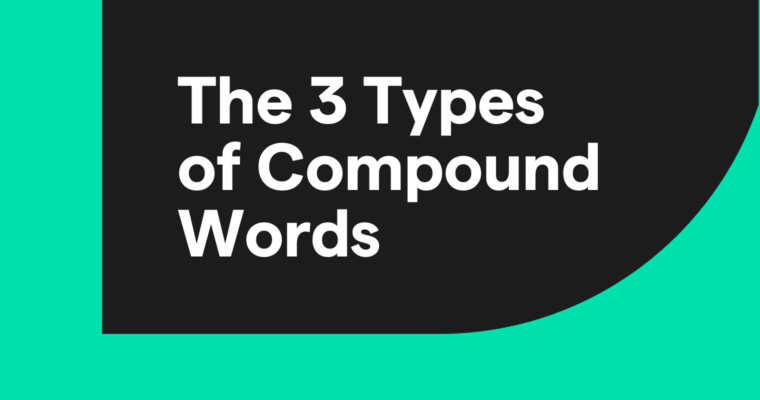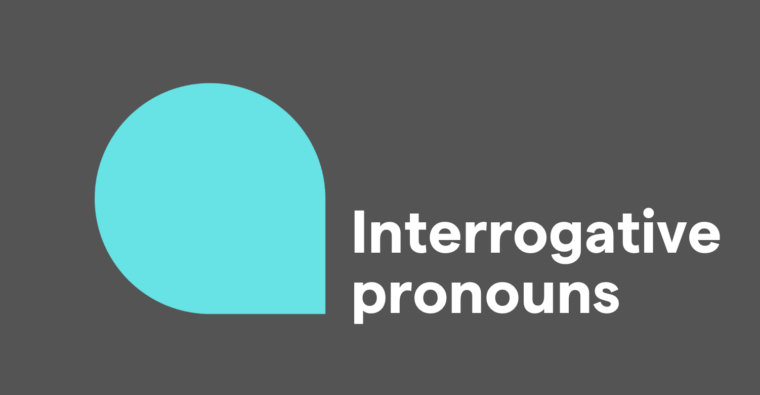
- Compound words are when two or more words combine to form a new single word or a phrase that acts like a single word.
- There are three different types of compound words in grammar: open compound words with spaces between the words (ice cream), closed compound words with no spaces (firefighter), and hyphenated compound words (up-to-date).
- Compound words have their own meanings that differ from those of the words they’re made of.
- Compound words function as singular entities in grammar, with specific rules for pluralization and conjugation depending on their type (living rooms, not livings rooms).
While compound words are a part of everyday communication, figuring out whether to use spaces, hyphens, or neither can get confusing. Here, we discuss the rules for using the three types of compound words, with examples.
Table of contents
What is a compound word?
Compound words are individual words (or phrases that act as individual words) made from two or more words working together. They can function as most parts of speech, including nouns, verbs, adjectives, adverbs, and even prepositions like inside, outside, within, and without.
Compound words have distinct meanings that differ from those of the words they’re made of. For example, the compound word grandparent is made from the individual words grand and parent. Grandparent acts as its own word with a unique definition, distinct from the definitions of grand and parent.
In grammar, there are three types of compound words, determined by how the words they include are separated: open compound words, closed compound words, and hyphenated compound words.
Compound words vs. blended words
Compound words are often confused with blended words (portmanteaus), but the two are very different. In compound words, each individual word generally remains unchanged. However, in blended words, only parts of each word are used.
For example, the word “internet” is a portmanteau combining the words “interconnected” and “network.” If it were a compound word, it would be something like “interconnected network,” with both words remaining whole.
1 Open compound words
Open compound words have spaces in between the words, which can make them hard to identify. But despite how they look, open compound words always act like single words. They always appear together in the same order, and they each have their own unique meanings.
Open compound words are mostly nouns, and they’re used the same as regular nouns. If you want to make an open compound word plural, you usually pluralize only the final word in the group, not all the words.
When open compound words are verbs, they’re more commonly known as phrasal verbs. Phrasal verbs have their own rules, but generally, only one of the words in the group is conjugated, while the others remain untouched.
Sometimes, open compound words take a hyphen if used as a different part of speech. For example, the compound word test drive is open when used as a noun but hyphenated as test-drive when used as a verb.
Examples of open compound words
| black eye | heart attack | prime minister | slam dunk |
| cell phone | high school | real estate | sleeping bag |
| close call | hot dog | remote control | time capsule |
| common sense | ice cream | report card | vacuum cleaner |
| cotton candy | life jacket | rib cage | vending machine |
| dining room | living room | role model | video game |
| first aid | no one | roller coaster | waiting room |
| full moon | peanut butter | salad dressing | washing machine |
| French fry | post office | search engine | web page |
2 Closed compound words
Closed compound words do not have spaces between the words they include, so they look and act like individual words. You can find closed compound words in almost all parts of speech.
Adverbs like sometimes or everywhere are closed compound words, as are the prepositions inside, outside, within, and without.
Even the word cannot, a shortened form of the phrase “can not,” is a closed compound word.
Examples of closed compound words
| anybody | desktop | inside | snowball |
| anything | everything | keyboard | somebody |
| anywhere | everywhere | lipstick | someone |
| background | everyone | mailbox | something |
| babysit | fingerprint | nevertheless | sometimes |
| baseball | firefly | nobody | sunflower |
| basketball | forever | none | toothbrush |
| bathroom | football | nonetheless | turntable |
| bedroom | gentleman | notebook | undercover |
| blackberry | grapefruit | nowhere | upstream |
| blueberry | granddaughter | outside | waterfall |
| breakfast | grandfather | payday | watermelon |
| cannot | grandmother | rainbow | weekend |
| checkout | grasshopper | raincoat | within |
| cowboy | handshake | skateboard | without |
| daylight | headquarters | smartphone | zookeeper |
3 Hyphenated compound words
Hyphenated compound words have hyphens between the words they include. When hyphenated compound words are nouns, you must pluralize the correct part. Unlike open compound words, you don’t always pluralize the final word in the group. For example, with the hyphenated compound word mother-in-law, you pluralize mother instead of law.
However, each hyphenated compound word is different; sometimes, the s comes at the end. For example, the plural of merry-go-round is merry-go-rounds.
As an adjective, a hyphenated compound word acts the same as a hyphen with compound modifiers.
Examples of hyphenated compound words
| check-in | know-how | nitty-gritty | strong-arm |
| clean-cut | know-it-all | one-dimensional | topsy-turvy |
| editor-in-chief | life-size | one-sided | toss-up |
| empty-handed | long-distance | over-the-counter | two-dimensional |
| eye-opener | long-term | part-time | up-to-date |
| far-fetched | merry-go-round | runner-up | well-being |
| father-in-law | mind-blowing | run-in | word-of-mouth |
| free-for-all | mother-in-law | sister-in-law | world-class |
Compound word FAQs
What are compound words?
Compound words occur when two or more words combine to form one individual word or a phrase that acts as one individual word. Common examples of compound words include ice cream, firefighter, and up-to-date.
What are the 3 types of compound words?
The three types of compound words are:
- Open compound words: spaces between the words (dining room)
- Closed compound words: no spaces between the words (babysit)
- Hyphenated compound words: hyphens between the words (free-for-all).
How do compound words work?
Compound words function as individual words. This means that when you’re conjugating compound verbs or pluralizing compound nouns, you only make the grammatical changes once. For example, if you want to talk about more than one living room, you say living rooms, not livings rooms.





